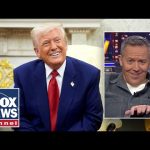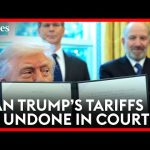President Trump’s new tariffs on Chinese imports have sparked a heated debate about America’s trade future. The move aims to protect U.S. jobs and factories from unfair competition, but critics claim it could hurt the economy. Let’s break down what’s happening and why it matters.
The White House says these tariffs are about fairness. For years, China has flooded global markets with cheap goods while blocking American products. Trump’s policy slaps steep taxes on Chinese imports to force Beijing to play by the rules. Supporters argue this levels the playing field for American workers and businesses. They point out that past tariffs under Trump helped grow U.S. manufacturing jobs.
Liberal economists warn the tariffs might raise prices for everyday items like electronics and clothing. They claim this could slow down the economy and even cause a recession. But conservatives push back, noting that a 2024 study showed Trump’s first-term tariffs actually strengthened the economy. They say short-term pain is worth long-term gains in rebuilding U.S. industries.
China isn’t backing down. The country has vowed to retaliate with its own taxes on American goods like soybeans and airplanes. This trade war could shake up global supply chains, with some companies moving factories out of China to avoid tariffs. Vietnam and Bangladesh might benefit from this shift, just as they did during Trump’s first term.
National security experts on the right highlight another angle. They say relying on China for critical goods like medicines or tech parts puts America at risk. By bringing production home, Trump’s tariffs aim to safeguard both jobs and the country’s defense capabilities. It’s about being self-reliant in case of international conflicts.
Some foreign leaders complain the tariffs will harm their economies. But conservatives counter that America shouldn’t sacrifice its interests to protect other nations. The U.S. has run massive trade deficits for decades, bleeding factories and know-how overseas. Trump’s team argues strong action was needed to stop the bleeding.
Despite doomsday predictions, many working-class voters stand by the president. They remember how previous administrations let factories close and jobs vanish. Trump’s “America First” approach resonates in towns hollowed out by globalization. For them, these tariffs represent a fight to put American workers ahead of foreign profits.
The left’s recession fears ignore history, conservatives say. The 2008 crash came from reckless banks, not trade policies. Trump’s tariffs are a targeted strike against unfair practices, not broad economic sabotage. With proper negotiating grit, the administration believes China will fold, leading to better deals and a stronger America. This isn’t just about trade—it’s about reclaiming national pride.




